
Become a member
Join today and help protect nature, beauty and history – for everyone, for ever. Enjoy access to more than 500 places with National Trust membership.
A spectacular wooded valley with 19th-century Gibson Mill at its heart
Gibson Mill, Midgehole Road, Hebden Bridge, West Yorkshire, HX7 7AW

| M | T | W | T | F | S | S |
|---|---|---|---|---|---|---|
Open
Closed
| Asset | Opening time |
|---|---|
| Countryside | Dawn - Dusk |
| Gibson Mill | Closed |
| Weaving Shed Café | Closed |
Our pay and display car parks at Clough Hole, Widdop Road HX7 7AZ and Midgehole HX7 7AA are £5 for up to 4 hours or £8 all day, coins only. No change given. Please be aware there is a 2m barrier on Clough Hole car park.
Dogs under control in the woodland. On lead near livestock and in the cafe and Gibson Mill.
In the courtyard at Gibson Mill or in the meadow near the mill. Indoor picnic area available on the second floor of Gibson Mill.
Accessible café, toilet and parking at Gibson Mill. Assistance dogs are welcome.
There is accessible parking at Gibson Mill (limited, pre-book on 01422 841032).
Drop off at Gibson Mill (call 01422 841032 to discuss).
Gibson Mill, Midgehole Road, Hebden Bridge, West Yorkshire, HX7 7AW
With 15 miles of footpaths, Hardcastle Crags is the perfect place to walk your dog and explore your surroundings, with helpful facilities available for your four-legged friend. Hardcastle Crags is a three pawprint rated place.

A beauty spot of the South Pennines with more than 400 acres of unspoilt woodland. A steep climb up to the Crags which give the site its name offers stunning views.
A 19th-century cotton mill set in the middle of a rugged valley. Today, the mill is totally off the grid and houses our Weaving Shed Café and regular exhibitions.
Open seven days a week from April to November and Friday - Sunday during the winter months. Serving a range of hot and cold drinks, sandwiches, soup, cakes and ice cream. Indoor and outdoor seating available.
More than 15 miles of footpaths to explore through the woodland and wider countryside. Lots of beautiful spots and wildlife to discover on route.
Inside the historic Gibson Mill, you’ll find the second-hand bookshop, which is run by our dedicated volunteers.
Experience the ultimate way to recharge at Hardcastle Crags with in a traditional wood-fired sauna. Set beside the pond at historic Gibson Mill, you’ll sauna surrounded by ancient woodland.
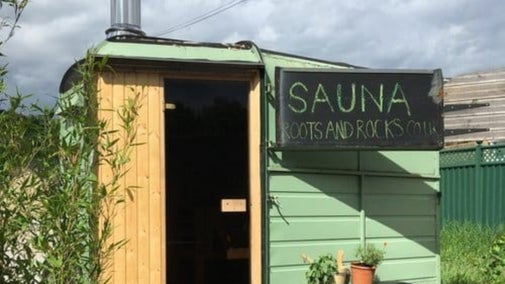
Discover nature connection events and workshops with Live Wild in the woodland at Hardcastle Crags.
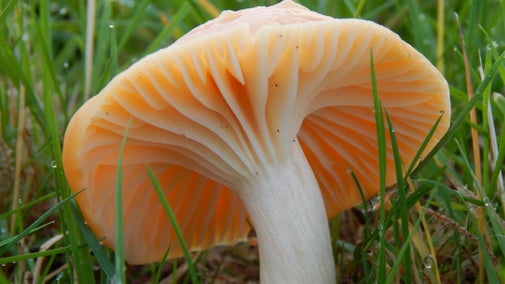
With 15 miles of footpaths to explore in the beautiful Yorkshire countryside, there's lots to discover on a walk at Hardcastle Crags.

Hardcastle Crags is home to an amazing array of wildlife. Grab your binoculars and head out into nature to discover the flora and fauna of this West Yorkshire beauty spot.

Gibson Mill, built in 1805, was one of the first cotton mills of the Industrial Revolution. Today, this historic building is home to a vibrant programme of art and exhibitions, showcasing creativity in a unique setting. Across its second and third floors, you’ll find regularly changing displays featuring local artists, thought-provoking installations, and works inspired by nature, heritage and conservation.
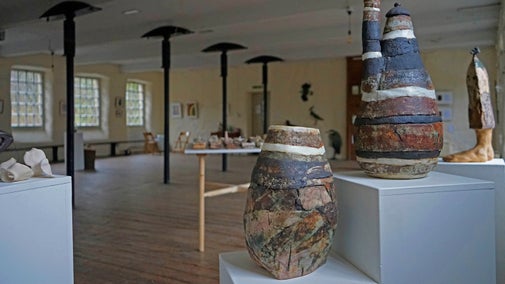
Head to the Weaving Shed Café for a choice of treats, then pop into the second-hand bookshop to pick your next page turner.
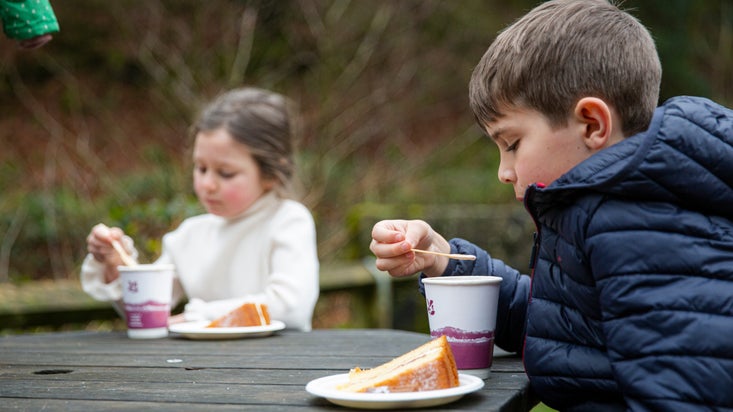
With 15 miles of footpaths to explore in the beautiful Yorkshire countryside, there's lots to discover on a walk at Hardcastle Crags.
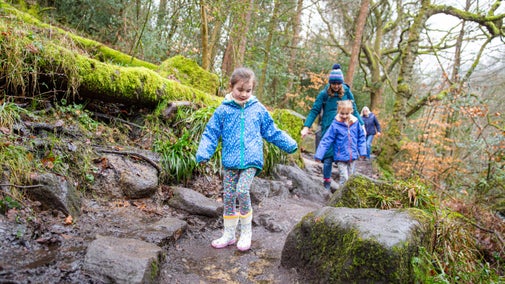
We are delighted to introduce our new permanent orienteering course at Hardcastle Crags, thoughtfully designed to offer a non-competitive and leisurely form of orienteering. This is your chance to use your map-reading skills to navigate a course of markers, or ‘controls’, while immersing yourself in the beauty of our enchanting landscape.

A chance to explore a quieter part of Hardcastle Crags with dramatic cliffs, waterfalls and lovely beech woods. The route starts along the edge of a lovely mill dam and then stays very close to the stream where you should watch out for Dippers, Wagtails and Herons.
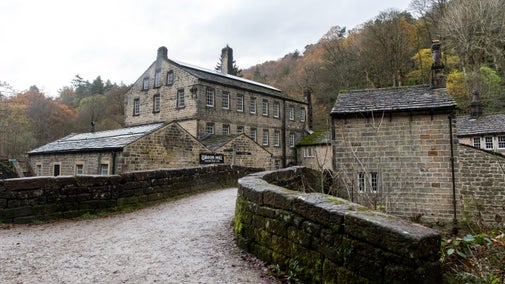
A varied circular walk through woods, alongside the stream and dams with great views along the higher slopes. Watch out for bluebells in the Spring. Part of this route follow the old railway that was used to build the reservoirs on the tops.
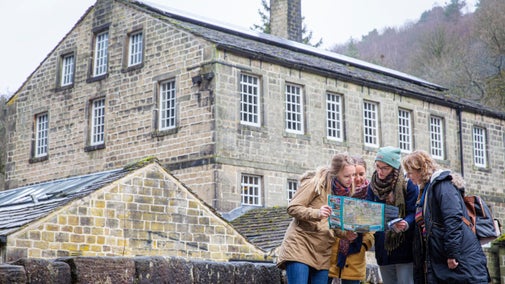
Walk from Hardcastle Crags' car park to Gibson Mill, and see how the stream changes along the route, looking out for weirs, wildlife and stepping stones – a fun way to get across to the other side.

Watch for local wildlife on a quieter part of the Crags, weaving through a wonderful stand of pines and taking in views from the rocky outcrop Slurring Rock.
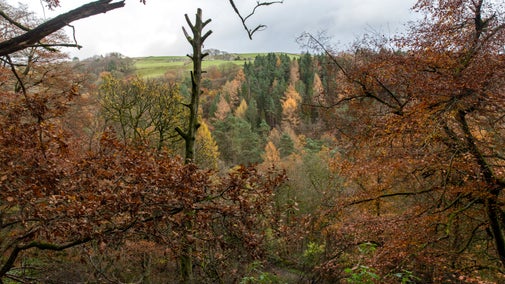

This cosy Victorian cottage, at the entrance to the Hardcastle Crags estate, has wooded valley views.

A carefully-restored retreat with original features with views of rolling hills and the Hardcastle Crags valley.
Discover why peatlands matter in this art‑meets‑nature exhibition.
Set beside the iconic Gibson Mill, you'll sauna surrounded by ancient woodland.
A beauty spot of the South Pennines with more than 400 acres of unspoilt woodland.
As well as being the home of the northern hairy wood ant, there are tumbling streams, glorious waterfalls and stacks of millstone grit, all crisscrossed by more than 15 miles of footpaths.
At the heart of the woodland you'll find Gibson Mill, home to the Weaving Shed Cafe. Having no link to the national grid, the mill is unique in the UK and is the Trust's flagship sustainable building.
Learn about the history and evolution of the landscape at Hardcastle Crags and Gibson Mill, including its industrial heritage and the mill’s time as an entertainment emporium.

Discover how the National Trust are working to manage woodland, and in doing so improving habitats for wildlife, limiting flooding and reducing our carbon footprint.

Discover how the National Trust has put Calderdale on the map with its Grassland Fungi Project.
Discover how the National Trust is working with community partners Slow the Flow to implement natural flood control methods and protect areas further downstream.
From welcoming visitors and sharing your passion for the outdoors, to helping us care for beautiful countryside, there are many opportunities to volunteer at Hardcastle Crags.


Join today and help protect nature, beauty and history – for everyone, for ever. Enjoy access to more than 500 places with National Trust membership.
By sharing your email address you’re agreeing to receive marketing emails from the National Trust and confirm you’re 18 years old or over. Please see our for more information on how we look after your personal data.